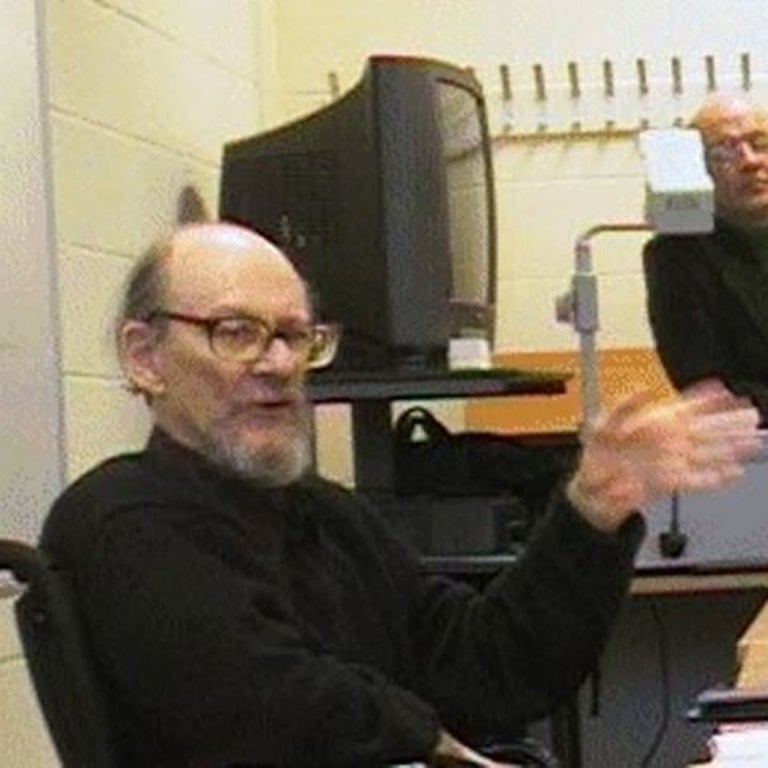Vic Finkelstein: Academic anddisability activist

Vic Finkelstein, who has died aged 73, was an activist and academic whose writings gave intellectual shape to the disabled people's movement. Finkelstein was born in Johannesburg in 1938, and grew up in Durban. He claimed later that his "lifelong resistance against regimentation" started in nursery school, while his Jewish background gave him an abhorrence of human oppression.
He was the youngest of three brothers, the first of whom had died in a childhood accident before Finkelstein was born. His childhood was without major incident, until at the age of 16 he broke his neck in an unsupervised experiment with pole vaulting.
Sent abroad for rehabilitation, he spent a year at Stoke Mandeville Hospital. During this time he competed as a swimmer in the Stoke Mandeville Games, winning a medal for South Africa. Twenty years later, he was to organise demonstrations against the presence of a white South African team in those games at a time when mainstream sports were boycotting the country.
He studied at The University of Natal, Durban and Pietermaritzburg, before taking a Masters in psychology at Witwaterstrand University in Johannesburg. During this time he became involved with anti-apartheid activism. When, in 1964, Bram Fischer, the Secretary General of the South African Communist Party, Nelson Mandela's trial lawyer, went underground to support the liberation struggle, Finkelstein was one of the group who supported him. In April 1966 he was detained under the 180-day laws and sentenced to 18 months' hard labour, with 15 months waived because he was "a cripple".
On his release he was issued with a five-year banning order under the Suppression of Communism Act. He would later claim that this limited his activities little more than the restrictions already placed on him as a disabled person. Nevertheless, he fled to the UK, where, through the Anti-Apartheid Movement, he met Elizabeth Lewin, whom he married in 1968.
When, in 1972, Paul Hunt wrote to the Guardian to propose the creation of a new consumer organisation to represent residents of disability institutions, Finkelstein responded, and the two founded the Union of the Physically Impaired Against Segregation. He drafted Fundamental Principles of Disability, UPIAS's public commentary on some fairly chilly debates with the Disability Alliance. At an early stage, the document contains the statement, "In our view it is society which disables physically impaired people. Disability is something imposed on top of our impairments, by the way we are unnecessarily isolated and excluded from full participation in society. Disabled people are therefore an oppressed group in society."
This was one of the earliest formulations of what would come to be known as the "social model" of disability, the big idea on which the modern disability movement has been founded. Finkelstein was to continue to develop this case for the next 30 years. Drawing upon his experience of the liberation struggle in South Africa, he would maintain that the oppression of disabled people must be fought by the building of a grassroots movement. I cannot overestimate how valuable it was to us as a nascent movement to have someone delivering position papers of such clarity and rigour.
Such democratic thinking led to the establishment of the British Council of Organisations of Disabled People in 1980. Finkelstein was closely involved and was elected the organisation's first chair; he was also elected to the World Congress of Disabled People's International.
Presciently, he also saw a need for disabled people to have their own arts and cultural organisations. In 1987 he formed part of the steering group that established the London Disability Arts Forum and at the launch of that organisation delivered a paper, "Disabled People and Our Cultural Development", that was to define the movement whose accomplishments have been recognised with the establishment of the National Disability Arts Collection and Archive (NDACA). It is a testament to Finkelstein's lasting influence that NDACA is entirely controlled by disabled people.
Finkelstein also made his mark in academia, when he gave up work as a NHS psychologist to join the Open University, where he was to become course chair of The Handicapped Person in the Community, the world's first course in disability studies. On retirement from the OU, he became a Visiting Senior Research Fellow to the Disability Research Unit at Leeds University.
Allan Sutherland
Victor Berel Finkelstein, disability activist and academic: born Johannesburg 25 January 1938; married1968 Elizabeth Lewin (died 1993; two daughters); died Stoke Mandeville 30 November 2011.
Join our commenting forum
Join thought-provoking conversations, follow other Independent readers and see their replies
Comments
Bookmark popover
Removed from bookmarks